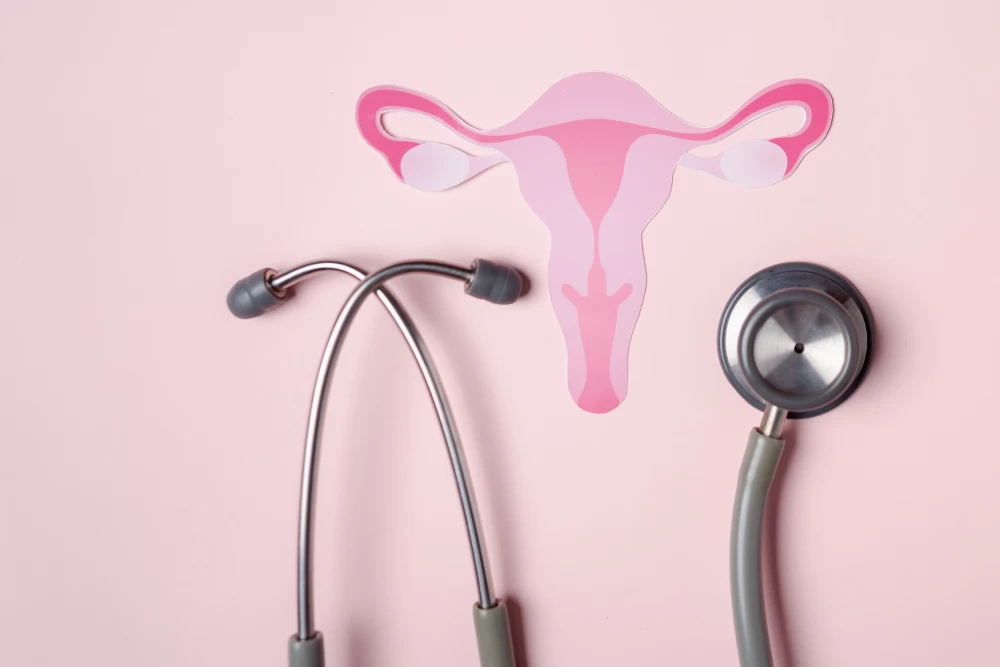
- 30th April 2023
Table of Contents
How does Intermittent Fasting work?
In intermittent fasting, you eat normally one day and then go without food for the next. The potential advantages of this approach to weight loss, insulin sensitivity, and general health have led to its rise in popularity in recent years. However, intermittent fasting might not be the best strategy for all couples trying to conceive. Researchers have found that both men and women may experience changes in reproductive function as a result of intermittent fasting. In women, prolonged calorie restriction has been linked to irregular menstrual cycles and lower ovulation. Further, oestrogen, a hormone required for ovulation and pregnancy, may be reduced by intermittent fasting. Despite preliminary evidence suggesting that intermittent fasting may improve female fertility in specific situations like polycystic ovary syndrome (PCOS), more studies are required before any firm recommendations can be made. Always talk to your doctor before starting a new diet or exercise plan, but it's especially crucial if you're trying to conceive.
Hormones and Metabolic Processes
The practise of intermittent fasting is rising in popularity as a means of controlling one's weight. However, research shows that it can also disrupt hormonal equilibrium and negatively impact reproductive health. A rise in cortisol levels during intermittent fasting has been linked to disruptions in ovulation and menstrual cycles in women. Low caloric intake from intermittent fasting can also send a message to the body that there is not enough energy to support reproduction, which can have a negative impact on fertility. Testosterone, a hormone necessary for male reproductive health, is reduced by intermittent fasting. Thyroid hormones play an important role in metabolism regulation and general health, and studies suggest that prolonged calorie restriction may cause their levels to decrease. The potential benefits of intermittent fasting for weight loss should be weighed against any negative effects on hormones or fertility. Intermittent fasting may be helpful for some people, but it's important to talk to a doctor to see if it's the right choice for you.

Impact on Fertility and Infant Health
Alternating periods of eating and fasting, known as "intermittent fasting," is a well-liked diet trend. Although there is evidence that intermittent fasting has some health benefits, newer studies suggest that it may have negative effects on reproductive health. Long-term fasting in women has been linked to menstrual cycle disruptions, which in turn has been linked to fertility problems. Both the number and mobility of sperm can be negatively impacted by intermittent fasting in men. Because the body treats intermittent fasting like stress, it causes hormonal shifts that can have a deleterious effect on sperm production. Consistent fasting in men has been linked to low testosterone levels, which has been shown to negatively impact male reproductive health. Intermittent fasting has been shown to be effective for weight loss in some people, but before adopting this diet trend, it is important to consider its potential effects on reproductive health. Before beginning a new diet, it is wise to speak with a medical professional or registered dietitian for advice.
Consequences on Fertility
The effects of intermittent fasting on fertility are unknown, despite the fact that the practise has become increasingly trendy in recent years. Intermittent fasting has been shown to boost insulin sensitivity and decrease inflammation, two factors that can have a positive effect on reproductive health. However, other studies show that severe calorie restriction can have a negative effect on fertility by altering hormone levels. Researchers found that by enhancing egg quality and controlling hormone levels, intermittent fasting improved the reproductive performance of female rats. But another study found that women who fasted for long periods lacked the reproductive hormones oestrogen and luteinizing hormone. There is still a lot of work to be done in this area, but people who are thinking about trying intermittent fasting should consider the pros and cons. Before making any drastic dietary changes, it is recommended that you speak with a medical professional.
Fasting's Positive Effects on Women

There are a number of advantages to intermittent fasting for women's reproductive health. One of the main benefits is that it can aid in hormone regulation. This, in turn, may result in better fertility and more regular periods. Ovulation relies on several hormones, but follicle-stimulating hormone (FSH) and luteinizing hormone (LH) are particularly important ones. Fasting at irregular intervals may also help reduce insulin resistance. This is significant because elevated insulin levels have been linked to conditions like polycystic ovary syndrome, which affect ovulation (PCOS). Women's chances of becoming pregnant, both naturally and with the help of fertility treatments, may improve if their insulin resistance is reduced. Weight loss is another benefit of intermittent fasting for women. It's important to note that both men and women can benefit from losing weight, and that it can have a positive effect on fertility. Obese women may have an increased chance of becoming pregnant if they lose as little as 5-10% of their body weight, according to some research. Even though more study is needed, preliminary findings suggest that intermittent fasting may improve reproductive health in women.
Consequences of Female Fasting
In recent years, fasting has gained popularity as a means to better health and weight management. However, fasting has been linked to deterioration in reproductive health in women. Women's fertility may be negatively impacted if they fast frequently because their menstrual cycles may become irregular. Hormonal disruptions caused by fasting have been linked to low oestrogen levels and an increased risk of osteoporosis. Further, fasting is not recommended for women who are pregnant or breastfeeding because it can prevent the absorption of nutrients critical to the health of the mother and her developing child. Low blood sugar, brought on by fasting, can cause wooziness, fainting, and even convulsions. If women are concerned about the effects of intermittent fasting on their reproductive health, they should talk to their doctor before beginning the practise. In conclusion, women should be aware of the risks associated with intermittent fasting despite the fact that it may seem like an effective way to achieve weight loss goals and improve overall health outcomes. Instead of putting their reproductive health at risk by following dangerous diet trends like intermittent fasting, women should make getting enough nutrition their top priority. Before making any drastic changes to your diet that could affect your health, it is best to consult a professional.














